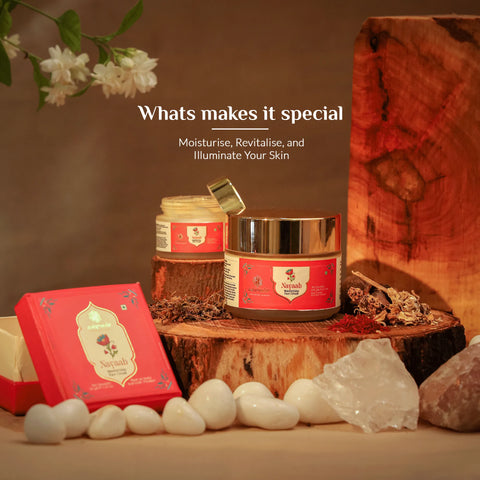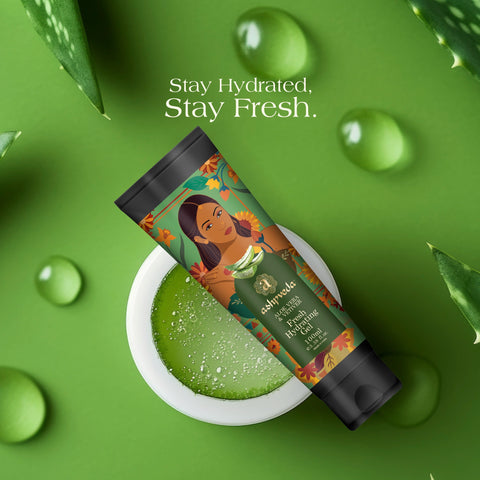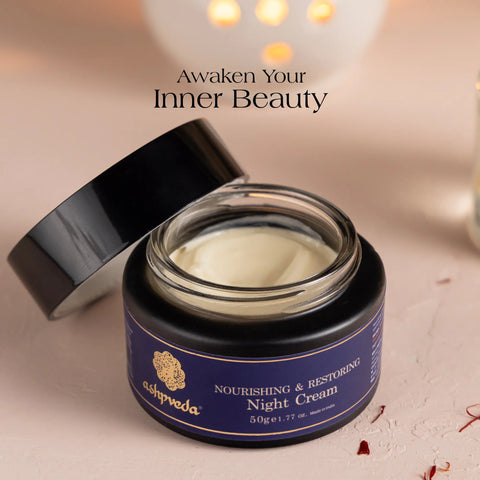
Struggling with breakouts or oily skin? Switching to non-comedogenic products might be the game-changer your skincare routine needs. In this comprehensive guide, we'll delve into what "non-comedogenic" means, highlight key ingredients to embrace or avoid, and recommend top products—including Ashpveda's Ayurvedic skincare line—to help you achieve healthier, clearer skin.
🧴 What Does "Non-Comedogenic" Mean?
The term non-comedogenic meaning refers to products formulated to not clog pores. Clogged pores can lead to comedones—blackheads and whiteheads—and exacerbate acne. While many products bear the "non-comedogenic" label, it's essential to note that there's no standardized testing across the industry. Some brands test their products on volunteer groups, and if the product scores between 0-2 on a 5-point scale for pore-clogging potential, it's labeled as non-comedogenic.
✅ Key Non-Comedogenic Ingredients to Look For
Incorporating the right ingredients can make a significant difference in managing acne-prone or oily skin. Here are some non-comedogenic ingredients renowned for their skin-friendly properties:
-
Salicylic Acid: An exfoliant that helps unclog pores and reduce inflammation.
-
Niacinamide: A form of Vitamin B3 that regulates oil production and improves skin texture.
-
Hyaluronic Acid: Provides hydration without adding oil, suitable for all skin types.
-
Aloe Vera: Soothes and hydrates the skin, ranking 0 on the comedogenic scale.
- Zinc Oxide: Often found in sunscreens, it offers sun protection and has anti-inflammatory properties.
╰┈➤ Emulsion Skincare: What Is It and How to Use It for Your Face?
🚫 Comedogenic Ingredients to Avoid
Certain ingredients are notorious for clogging pores and should be avoided, especially if you have acne-prone skin:
-
Isopropyl Palmitate
-
Coconut Oil: Despite its popularity, it's highly comedogenic and can exacerbate acne.
-
Lanolin
-
Myristyl Myristate
-
D&C Red Dyes: Common in cosmetics, these can irritate the skin and clog pores.
Always check product labels and ingredient lists to ensure they don't contain these pore-clogging culprits.
╰┈➤ Comedonal Acne: Causes, Treatments & Ayurvedic Solutions
🛍️ Top Non-Comedogenic Products to Consider
Selecting the right products is crucial. Here are some non-comedogenic products that have garnered positive reviews:
🌼 Ashpveda's Ayurvedic Non-Comedogenic Skincare
Ashpveda offers a range of Ayurvedic skincare products formulated with natural, non-comedogenic ingredients, making them suitable for various skin types:
- Ashpveda Herbal Moisturizer with Saffron: A lightweight, nourishing moisturizer ideal for daily use.
- Ashpveda Hydrating Aloe Vera Gel: Functions like an emulsion with a gel-based texture, perfect for oily and combination skin.
- Ashpveda Night Cream: A non-comedogenic night cream that hydrates without clogging pores.
🧴 Other Recommended Products
-
Simple Kind To Skin Refreshing Facial Wash: Infused with pro-vitamin B and vitamin E, this cleanser is free from artificial dyes, perfumes, and harsh chemicals.
-
La Roche-Posay Anthelios UVMUNE 400 SPF 50+: A lightweight, non-comedogenic sunscreen that offers broad-spectrum protection.
-
CeraVe Facial Moisturizing Lotion AM SPF 50: Combines sun protection with essential ceramides and hyaluronic acid.
- Neutrogena Hydro Boost Water Gel: A gel-based moisturizer with hyaluronic acid that provides hydration without greasiness.
╰┈➤ Skincare Routine For Women
Final Thoughts
Embracing non-comedogenic skincare can be a pivotal step toward achieving clearer, healthier skin. By understanding which ingredients to seek out and which to avoid, you can make informed choices that align with your skin's needs. Ashpveda's Ayurvedic products offer natural, non-comedogenic options suitable for various skin types. Remember, everyone's skin is unique, so what works for one person might not work for another. Consulting with a dermatologist can provide personalized guidance tailored to your skin type and concerns.
FAQs About Non-Comedogenic Skincare
-
Is "non-comedogenic" the same as "oil-free"?
Not necessarily. While many non-comedogenic products are oil-free, some contain oils that don't clog pores, like rosehip seed oil or hemp seed oil.
-
Can I trust products labeled as non-comedogenic?
The term isn't strictly regulated, so it's wise to review ingredient lists and consult reviews or dermatologists, especially if you have sensitive or acne-prone skin.
-
Are natural products always non-comedogenic?
No. Some natural ingredients, like coconut oil, are highly comedogenic. Always research individual ingredients regardless of their natural origin.
-
How can I test if a product is non-comedogenic for me?
Perform a patch test by applying the product to a small area of your skin and observing for any reactions over 24-48 hours. Monitoring your skin's response can help determine suitability.
- Choosing a selection results in a full page refresh.




